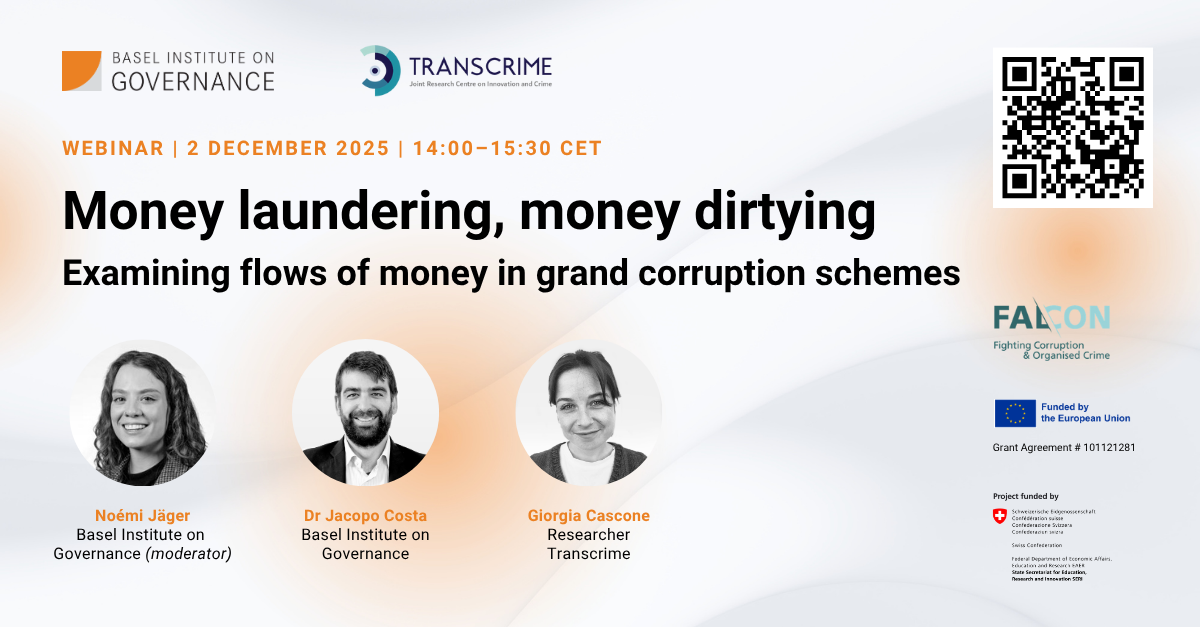Money laundering, money dirtying: examining flows of money in grand corruption schemes
Mozambique exits FATF grey list: milestone in strengthening the fight against illicit finance
The Financial Action Task Force (FATF) is removing Mozambique from its “grey” list of jurisdictions under increased monitoring, following more than two years of intensive reform and implementation efforts.
Mozambique was placed on the FATF grey list in October 2022. It has since made significant progress in addressing strategic deficiencies in its anti-money laundering and counter-terrorist financing (AML/CFT) framework.
Strengthening integrity in Ukraine’s natural resources, energy and defence sectors with Norway’s support
We are delighted to announce a new grant that will enable the Basel Institute on Governance to continue and expand its support to Ukraine on integrity and accountability.
Quick Guide 42: Non-conviction based confiscation
Criminals exploit legal loopholes, borders and other avenues to conceal the proceeds of their illegal activities and evade prosecution. Meanwhile, they use their illicit proceeds to buy luxury villas or increase their power and influence. Victims of crime – including communities affected by corruption – suffer the losses.
Basel AML Index 2025 launch
Thank you to everyone who joined us for the launch of the 2025 Public Edition of the Basel AML Index, an independent ranking and risk assessment tool measuring money laundering and related financial crime risks worldwide.
Certificate of Advanced Studies: Mastering Today's Anti-Corruption Challenges
Corruption and financial crime undermine societies, from stalling economic growth to eroding public trust. Understanding their dynamics and how to fight them effectively is vital for professionals from any sector and corner of the world.
This certificate programme with the University of Basel is designed to boost the knowledge, skills and careers of professionals who care about countering corruption.
Illegal gold mining and illicit financial flows: from the Amazon basin to destination countries
Basel Institute newsletter - September 2025
The newsletter starts with a reflection by our Executive Director Betsy Andersen and covers highlights in late August and September 2025. It also features our latest news, blogs, other publications and current job vacancies.
Not yet a subscriber? Sign up here.
Global professionals begin new anti-corruption studies
The Basel Institute’s first international postgraduate programme in anti-corruption has begun. 12 students from 11 countries across Africa, Europe and North America are taking part in the six-month course, led by Basel Institute staff and resulting in a Certificate of Advanced Studies from the University of Basel.
The course, Mastering Today’s Anti-Corruption Challenges, equips mid-career professionals with the tools, skills and networks to address corruption and governance challenges in their work.
Policy Brief 15: Rethinking how Switzerland uses illicit profits from foreign bribery settlements
Only a handful of states have been actively pursuing the enforcement of foreign bribery. Switzerland is one of them and its efforts to crack down on this offence is commendable.
Between 2011 and 2024, Switzerland issued 14 final judicial orders at a federal level against Swiss-linked companies that engaged in foreign bribery. In these proceedings, the companies were ordered to hand over approximately CHF 730 million (combined) in illicit profits that they had obtained through their foreign bribery schemes, and an additional CHF 30 million in fines.


